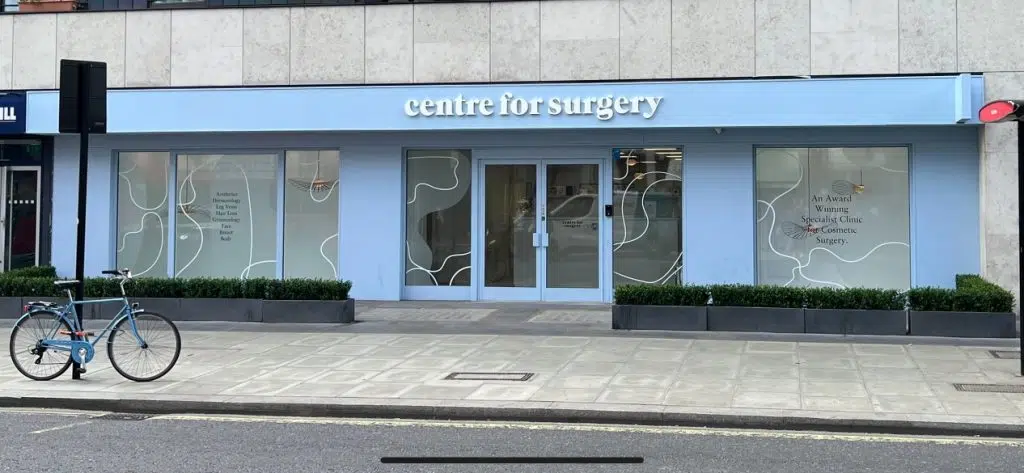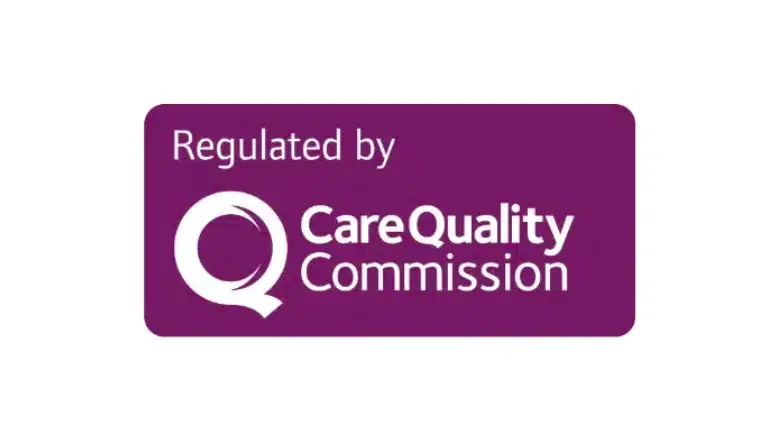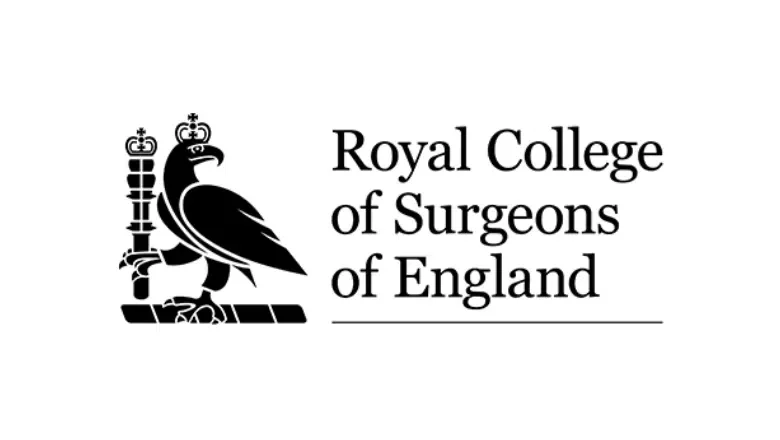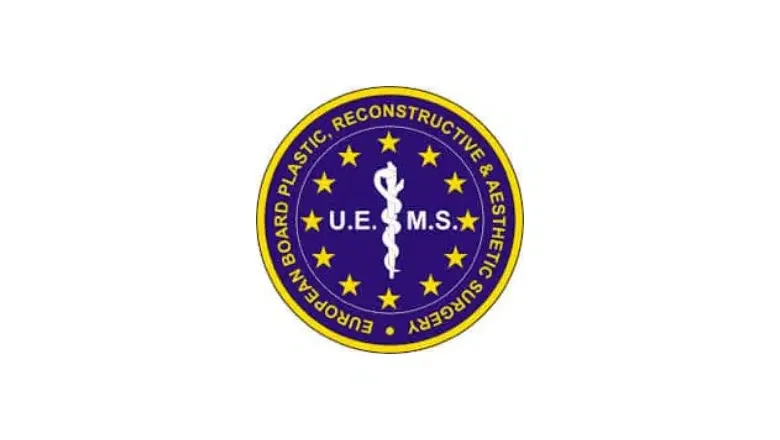Breast augmentation continues to be one of the most sought-after cosmetic procedures in the UK, offering enhanced aesthetics and a confidence boost to countless women. With improvements in surgical techniques and implant technology, many are enjoying the benefits of this transformative surgery.
RELATED: Latest Update on Breast Implant Illness – Symptoms & Treatment
However, the rise of discussions around breast implant illness (BII) cannot be ignored. The internet is awash with stories and claims related to BII, but separating fact from fiction can be challenging. To help you navigate this complex issue, we’re providing an in-depth look at breast implant illness below.
What is breast implant illness?
Breast implant illness (BII) is a term used to describe a range of symptoms that some individuals may experience after receiving breast implants. The symptoms reported by people who believe they have BII can vary widely, but some common symptoms include chronic fatigue, muscle and joint pain, cognitive issues, skin rashes and hair loss, autoimmune symptoms, and neurological symptoms. However, it is important to note that these symptoms are not unique to BII and may be caused by other conditions.
RELATED: Is There A Breast Implant Illness Test?
The cause of BII is not well understood and is not recognised as a medical condition by many medical experts in the UK. Some researchers and medical professionals believe that BII may be related to the presence of silicone or other materials used in breast implants, while others believe that it may be related to the body’s immune response to the foreign object of the implant or the surgical procedure.
Breast implant illness is not yet considered a recognised medical condition in the UK, and there is no consensus on what causes BII, so it’s important to consult a medical professional for proper diagnosis and treatment. Symptoms should be evaluated by a qualified healthcare professional, who will be able to rule out other possible causes and recommend appropriate treatments.
Is BII real?
The question of whether Breast Implant Illness (BII) is “real” is a subject of ongoing debate within the medical community in the UK. While BII is not officially recognised as a medical condition at this time, some recent studies have begun to explore the validity of the symptoms and their connection to breast implants.
For instance, the 2019 study in Clinical Immunology you mentioned has contributed to a growing body of evidence that suggests a relationship between silicone breast implants and the various symptoms commonly attributed to BII. According to this study, removing the implants led to symptom improvement in most, though not all, cases.
It is also worth noting that BII is becoming an increasingly common topic of discussion at academic conferences and in medical literature. Regulatory bodies such as the U.S. Food and Drug Administration (FDA) have also taken steps to better understand the risks associated with breast implants, including the potential for BII.
Given these developments, one could argue that while BII is not yet officially recognized, the collection of symptoms and patient reports cannot be easily dismissed either. Ongoing research is crucial for drawing more definitive conclusions about the condition, its prevalence, and the best approaches for diagnosis and treatment.
Six symptoms of Breast Implant Illness (BII)
Symptoms of breast implant illness (BII) are varied and can vary from person to person. Here are six common symptoms that people with BII may experience:
Chronic fatigue
Many people with BII report feeling exhausted, even after getting a good night’s sleep.
Muscle and joint pain
Some individuals experience chronic pain in their muscles and joints, which can be debilitating.
Cognitive issues
Many people with BII experience cognitive issues such as difficulty concentrating, memory loss, and confusion.
Skin rashes and hair loss
Some people with BII experience skin rashes, hair loss, and other skin-related issues.
Autoimmune symptoms
Some individuals with BII experience autoimmune symptoms such as lupus, rheumatoid arthritis, and scleroderma.
Neurological symptoms
Some people with BII experience neurological symptoms such as headaches, migraines, and seizures.
When do breast implant illness symptoms start?
The onset of symptoms of breast implant illness (BII) can vary from person to person. Some people may experience symptoms immediately after receiving breast implants, while others may not develop symptoms until years later. Symptoms may appear gradually or suddenly. Some individuals may experience symptoms right after the surgery, while others may not experience symptoms until years later. It’s important to note that breast implants are not considered the only cause of these symptoms and that other conditions can cause these symptoms, so it’s essential to consult a plastic surgeon for an accurate diagnosis.
What kind of health problems can breast implants cause?
Breast implants can cause a variety of health problems, including:
Capsular contracture
This complication occurs when the scar tissue or capsule surrounding the implant tightens, causing pain and distorting the shape of the breast.
Implant rupture
Breast implants can rupture or leak, leading to the release of silicone or saline into the body.
Breast implant illness
Some individuals may experience a range of symptoms collectively referred to as breast implant illness (BII), which can include fatigue, muscle and joint pain, cognitive issues, skin rashes and hair loss, autoimmune symptoms, and neurological symptoms.
Infections
Breast implants can become infected, which can lead to serious complications if not treated promptly.
Interference with mammograms
Breast implants can make it more difficult to detect breast cancer on mammograms, which can delay diagnosis.
Additional surgeries
Breast implants may need to be removed or replaced due to complications, leading to additional surgeries.
Does breast implant illness go away?
Breast implant illness (BII) is a term used to describe a range of symptoms that some individuals may experience after receiving breast implants. It is not a recognized medical condition, and there is no consensus on what causes BII. However, some people who believe they have BII have reported experiencing improvement or resolution of symptoms after having their breast implants removed.
Removal of breast implants, also called explantation, is the only known way to completely remove the breast implant and the surrounding capsule and can be an option for some individuals to alleviate their symptoms. However, it is important to note that even after explantation, some people may still experience symptoms, and it is important to consult a medical professional to rule out other possible causes of these symptoms.
What should you do if you think you have breast implant illness?
If you think you may have breast implant illness (BII), it is important to consult a medical professional for proper diagnosis and treatment. Here are some steps you can take:
- Schedule an appointment with your GP or a specialist, such as a rheumatologist or a neurologist, to discuss your symptoms.
- Gather medical records, including your implant information (size, brand, manufacturer, etc.) and any previous imaging or surgery records.
- Be prepared to discuss your symptoms in detail, including when they began, how often they occur, and how severe they are.
- Consider getting a breast MRI or ultrasound to check if the implant has ruptured or if there is any sign of inflammation or infection.
- Be open to the possibility that your symptoms may be caused by something other than BII, and be willing to undergo further testing and evaluation as needed.
- If the diagnosis is BII, consider the option of explantation or removal of the breast implant with a qualified and experienced plastic surgeon who will be able to advise the patient on the best course of action for their individual case, including the potential risks and benefits of explantation.
RELATED: Breast Implant Removal FAQs – Q&A about Explant Surgery
FAQs on breast implant illness
How Common is Breast Implant Illness?
As of now, there’s no official count of how many people experience symptoms they attribute to Breast Implant Illness (BII). There are online groups and communities where thousands of members share their personal experiences, but without formal research, it’s hard to say exactly how common BII is. Studies are needed to understand not just the symptoms but also how many people in the UK and around the world are affected.
What are the chances of getting a BII?
The likelihood of developing Breast Implant Illness (BII) is still unclear, largely because the medical community has not yet reached a consensus on what constitutes BII or how common it is. Although some studies suggest a link between silicone breast implants and the constellation of symptoms known as BII, these findings are still considered preliminary and are subject to further investigation.
If you’re considering breast implants or are thinking about replacing existing ones, it’s crucial to have an in-depth consultation with a qualified surgeon. The surgeon can evaluate your medical history, discuss potential risk factors, and present alternative options. Importantly, they can provide you with the most current information and research findings related to BII, so you can make an informed decision.
Does everyone with implants get BII?
No, not everyone with breast implants experiences Breast Implant Illness (BII). As you mentioned, some studies suggest that individuals with a family history of autoimmune conditions or a personal history of anxiety may be more likely to develop symptoms associated with BII. The role of other factors, such as high social media use and tattoos, is also being studied but is not yet clearly understood.
It’s crucial to note that the scientific understanding of BII is still evolving. While some studies have found a link between silicone implants and the condition, there is still considerable debate within the medical community about how to define, diagnose, and treat BII. Many people have breast implants without experiencing any symptoms associated with BII.
What Happens if You Don’t Replace Breast Implants?
Breast implants aren’t meant to last a lifetime. Some women might have the same set for up to a decade or even longer, while others might need to replace them much sooner. Regular check-ups with your surgeon are crucial. Failing to replace an implant when needed can lead to complications like the implant breaking or leaking, known as implant rupture.
How Can You Determine If Your Breast Implant Is Infected?
Infections related to breast implants are relatively uncommon and generally can be mitigated through proper surgical protocols and postoperative care. Nonetheless, because a breast implant introduces a foreign object into the body, there is a heightened risk for infection when compared to surgeries without implants. Bacteria entering the surgical site during or after the operation can pose a particular challenge for your immune system to combat, even with antibiotic treatment.
If you suspect a breast implant infection, look out for these indicative signs and symptoms:
- Persistent Pain in the Breast Area
- Occurrence of Chills and Fever
- Drainage of Pus from the Surgical Site or Nearby
- Localized Redness
- Noticeable Swelling
Does Insurance Cover Breast Implant Illness?
Since BII isn’t officially recognised as a medical condition, UK insurance companies are unlikely to cover treatment specifically for it. Additionally, cosmetic surgeries are usually not covered by insurance, which makes it less likely that any side effects or complications from such surgeries, including BII, would be covered.
What Are the Long-Term Effects of Breast Implants?
The long-term effects of breast implants can vary widely from person to person. Some women may not experience any negative side effects at all. However, common issues that do arise include capsular contracture, which is the hardening of the area around the implant, and implant rupture. Both of these complications may require additional surgery to correct. Given that some people report symptoms of BII, there is still much to learn about the long-term implications of breast implants.
How Long Does It Take for Symptoms to Subside After Explant Surgery?
The timeline for symptom improvement following explant surgery for breast implant illness (BII) varies widely among patients. While some patients report significant relief within months of having their implants removed, others may take a couple of years to fully recover. The individual response to explant surgery depends on numerous factors such as the patient’s overall health, whether the implant and capsule were completely removed, and the duration of time the implants were in place. It’s crucial to consult with a specialized healthcare provider for a tailored treatment plan and realistic expectations about symptom relief.
When Can Symptoms of BII Manifest After Augmentation?
Symptoms of BII can appear at any point after breast augmentation surgery. There is no standardized timeframe for the onset of symptoms; they can appear shortly after the procedure or take years to manifest. If you are experiencing severe symptoms that you believe may be related to your breast implants, it is crucial to consult a qualified medical professional for a comprehensive evaluation and appropriate management.
Transforming Lives, One Procedure at a Time
Centre for Surgery: Where Expertise Meets Compassion
Choose Centre for Surgery, located at London’s esteemed 95-97 Baker Street, for a transformative experience that prioritises your unique needs and aspirations.
Specialized Procedures
We offer a range of specialised surgical and non-surgical options tailored to meet your individual needs. Our team of highly skilled surgeons ensures your treatment plan is as unique as you are.
Strict Safety Standards
Your safety is our prime concern. We adhere to the most stringent safety protocols, providing peace of mind throughout your journey.
Voices of Our Patients
🌟 Anna L., 28, Brazilian Butt Lift “I feel amazing! The staff was caring and professional, and the results are spectacular!”
🌟 Peter D., 45, Hair Transplant “I’ve regained not just my hair, but also my confidence. A fantastic experience overall!”
🌟 Sara V., 40, Mummy Makeover “Centre for Surgery helped me reclaim my body and my life. Their aftercare is second to none.”
Reach Out for a Consultation
📞 Phone: 0207 993 4849
📧 Email: contact@centreforsurgery.com
📍 Address: 95-97 Baker Street, London W1U 6RN
Schedule a Consultation at Centre for Surgery
If you think you may have breast implant illness, it is important to get a medical evaluation as soon as possible. Whilst you can see the surgeon who initially performed your breast augmentation, it is also possible to see a different plastic surgeon. We understand how challenging it can be whether you may be experiencing symptoms of breast implant illness or an unrelated medical condition. Our plastic surgeons have significant experience working with patients who may have developed breast implant illness and can suggest effective treatment options, including breast implant removal or explantation if required.










